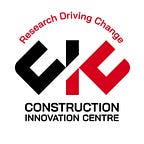Meet Dr. Yasser Mohamed, the new Director of the CIC
The CIC would like to welcome Dr. Yasser Mohamed to his new position of Director of the CIC!
Dr. Mohamed is a professional engineer and professor with the Department of Civil Engineering at the University of Alberta. He has expertise is in the areas of modeling and simulation, data mining, and machine learning; and has developed applications of these techniques in different construction domains including tunneling, industrial construction, off-site construction fabrication, infrastructures, and safety. His research spans more than 15 years of collaborations with construction companies in Alberta, which have resulted in several solutions that have been adopted by industry partners and are in use to this day, as well as the training of over 30 PhD and master students, and over 100 journal and conference articles.
What is one thing you can’t live without?
Good caring people around, both at home and at work.
What are your hopes for the CIC in 2021?
Strong engagement of all stakeholders, including industry partners, researchers, and students, that will allow us to take CIC activities and programs to next levels that are useful to everyone involved with the CIC and attractive to anyone that hears about them.
What is one important skill that you think everyone should have or learn?
“How to learn”, or in other words, the ability to seek out and gain knowledge as needed from the right sources. We live in a time when knowledge is available to us in many easy to grasp forms. Knowing what information to look for and where to find it is a skill that everyone needs to build and hone.
What do you consider one of your greatest personal or professional achievements?
When one of my daughters, a student, a friend, or a colleague tells me that they learned information, a skill, or a principle from me at some point in the past and still remember and use that knowledge. That is what I consider an achievement.
If you could solve any problem in the world, what would it be?
I would solve the problem of inequality and poverty that people in different parts of the world suffer from.
What three words best describe your personal values?
“Balance”, “fairness”, and “freedom”.
What does “innovation” mean to you?
The ability to think out of the box or look in unconventional places to find solutions to existing problems or ways to change existing practices that maximize benefits and minimize harm and cost at the same time.
What activity helps you relieve stress?
It depends on the time and location. It can be a good workout with friends, a cup of black tea with mint in front of a fire pit, or a dive into the virtual world of a well-made simulation game.
What is your favourite inspirational quote, and who said it?
There are many, but if I were to choose one relevant to my profession, it would be a quote from W. Edwards Deming: “If you do not know how to ask the right question, you discover nothing.”
What is the best advice you have been given?
“Relax”, as my Sensei once said during sparring. As simple as this may sound, it is not easy to relax in an intense and rapidly changing situation. However, if one can master this ability, it becomes possible to see opportunities and solutions that one could not otherwise see.
Dr. Mohamed’s general research interest focuses on modeling construction processes using discrete-event simulation techniques. He has conducted research for modeling tunneling and industrial construction operations that has produced reliable models that have been used for testing and optimizing process performance for a number of real-life projects. They have also provided test beds for a number of other researchers to test the applicability of new theories and analytical approaches to some of these construction areas.
He has completed research in the application of theory of inventive problem solving (TRIZ) to the construction domain as part of his PhD work. The use of this theory has created new ways of structuring the knowledge used in describing and analyzing a construction process that enable the optimization of the topology of the process in addition to its numerical parameters.
